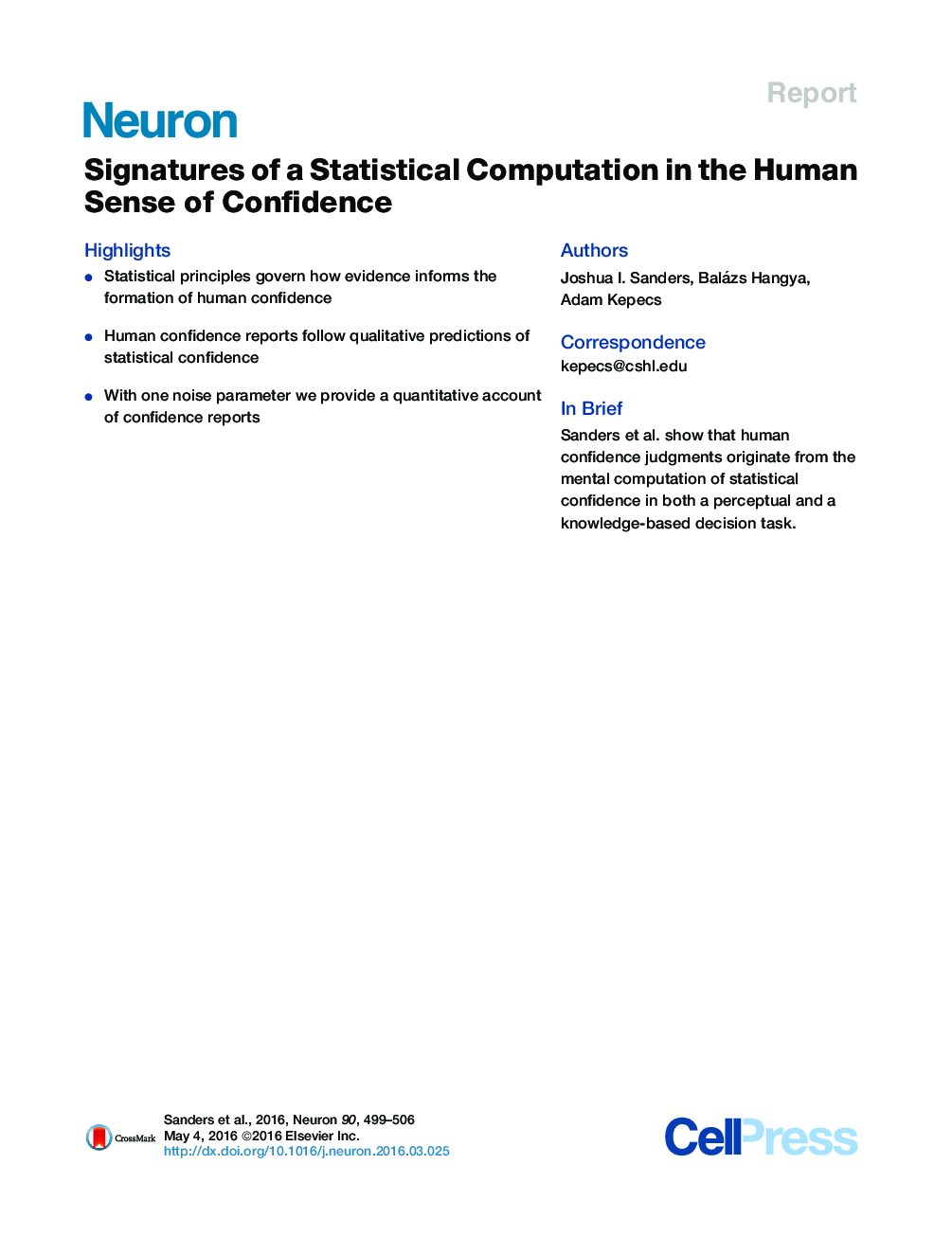| Article ID | Journal | Published Year | Pages | File Type |
|---|---|---|---|---|
| 4320704 | Neuron | 2016 | 8 Pages |
•Statistical principles govern how evidence informs the formation of human confidence•Human confidence reports follow qualitative predictions of statistical confidence•With one noise parameter we provide a quantitative account of confidence reports
SummaryHuman confidence judgments are thought to originate from metacognitive processes that provide a subjective assessment about one’s beliefs. Alternatively, confidence is framed in mathematics as an objective statistical quantity: the probability that a chosen hypothesis is correct. Despite similar terminology, it remains unclear whether the subjective feeling of confidence is related to the objective, statistical computation of confidence. To address this, we collected confidence reports from humans performing perceptual and knowledge-based psychometric decision tasks. We observed two counterintuitive patterns relating confidence to choice and evidence: apparent overconfidence in choices based on uninformative evidence, and decreasing confidence with increasing evidence strength for erroneous choices. We show that these patterns lawfully arise from statistical confidence, and therefore occur even for perfectly calibrated confidence measures. Furthermore, statistical confidence quantitatively accounted for human confidence in our tasks without necessitating heuristic operations. Accordingly, we suggest that the human feeling of confidence originates from a mental computation of statistical confidence.
